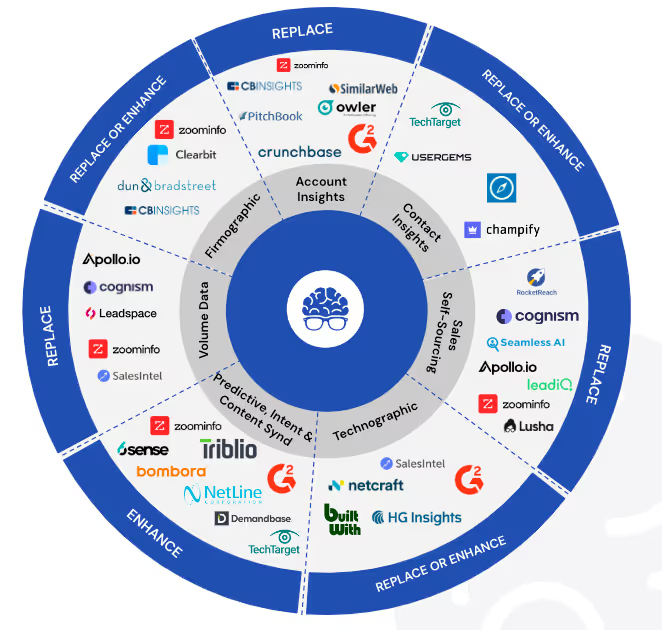After four long years of anticipation and speculation, Google has made a landmark decision to reverse its plan to deprecate third-party cookies in its Chrome browser. This decision holds significant implications for marketers, advertisers, and businesses that have been preparing for a cookie-less future. Here’s an in-depth look at what this means and how it impacts your business.
The Role of Third-Party Cookies
Third-party cookies are small pieces of data stored in a user’s browser that inform advertisers about the user’s browsing activity. Unlike first-party cookies that come from the website you’re visiting, third-party cookies are set by websites other than the one you are on, enabling advertisers to track users across different sites for ad personalization and targeting.
For years, there has been ongoing discourse about the privacy implications of third-party cookies. While browsers like Safari and Firefox deprecated third-party cookies years ago, Google’s decision to follow suit in 2020 signaled a significant shift. However, the journey toward this change has been fraught with delays and reconsiderations.
The Announcement and Its Timing
Google’s recent announcement to keep third-party cookies comes at a critical time. It coincides with Apple’s launch of ominous ads highlighting privacy concerns, clearly targeting Google Chrome. Despite Safari’s move to deprecate third-party cookies, Apple faces legislative constraints in the EU, preventing it from fully stopping third-party data collection. This backdrop adds layers to Google’s decision and its broader implications.
Declining Effectiveness and New Alternatives
Even before Google’s decision, the effectiveness of third-party cookie tracking had been waning. Marketers and data providers have been exploring new ways to understand consumer behavior and create targeted advertising. ZoomInfo, for instance, introduced Privacy Clusters in 2020, a behavioral tracking alternative that prioritizes user privacy while enabling targeted advertising.
“Cookies are just one data point in our identity graph, and we use a variety of data points to map devices to companies or people,” says Brett Elliot, Principal Product Manager at ZoomInfo. “The power is in diversification.”
The Immediate Impact
For marketers, the news that Google will not deprecate third-party cookies is a relief. It means that advertisers on the open web can continue business as usual without immediate disruptions. However, it’s crucial for brands to continue seeking cookie alternatives and work with data partners focusing on first-party data.
“The good news for the advertising ecosystem is that Chrome will allow advertisers on the open web to continue doing business as usual,” adds Elliot. Yet, the volatile nature of this space means that marketers must remain proactive in investing in non-cookie-based identifiers.
Google’s Updated Approach
In its blog post, Google outlined an “updated approach,” indicating it won’t deprecate third-party cookies but will introduce a new experience in Chrome. This new approach aims to give users informed choices about their web browsing and allows them to adjust these settings anytime.
Google is engaging with regulators, including the U.K.’s Competition and Markets Authority (CMA) and Information Commissioner’s Office (ICO), to discuss this pivot. The Privacy Sandbox initiative, which Google has been developing to provide privacy-preserving alternatives, will continue to be a cornerstone of their strategy.
Anthony Chavez, VP of the Privacy Sandbox, emphasized that developers need privacy-preserving alternatives and that the Privacy Sandbox APIs will remain available and will be further improved to enhance privacy and utility.
Long-Term Considerations
Despite the relief this decision brings, it’s essential for businesses not to become complacent. The digital advertising landscape is constantly evolving, and reliance on third-party cookies is not a sustainable long-term strategy. Investing in first-party data solutions and exploring innovative privacy-preserving technologies is critical for future-proofing your business.
“We developed the Privacy Sandbox with the goal of finding innovative solutions that meaningfully improve online privacy while preserving an ad-supported internet,” Chavez stated. This commitment highlights Google’s ongoing efforts to balance privacy concerns with the needs of the advertising ecosystem.
Potential Outcomes and Industry Reactions
Google’s decision might inadvertently encourage users to opt out of third-party cookies, necessitating more robust alternatives. This scenario could mirror Apple’s introduction of App Tracking Transparency, allowing users to choose whether to share their data with apps and websites.
The industry must be prepared for unexpected shifts, given the history of delays and changes in Google’s strategy. Google’s tests of Privacy Sandbox alternatives showed promising results in ad performance recovery, suggesting that these technologies could help mitigate the loss of third-party cookies. However, these findings are preliminary, and there’s still significant work ahead.
Conclusion
Google’s reversal on third-party cookie deprecation is a pivotal moment for the digital advertising industry. While it offers temporary relief, it underscores the need for continued innovation and investment in privacy-preserving advertising technologies. Businesses must stay agile and forward-thinking, preparing for an ever-changing landscape where user privacy and data-driven marketing must coexist.
As we navigate this new phase, the importance of first-party data and diversified tracking solutions becomes even more apparent. Marketers and advertisers should leverage this moment to reassess their strategies, ensuring they are well-equipped to thrive in a privacy-centric future.




